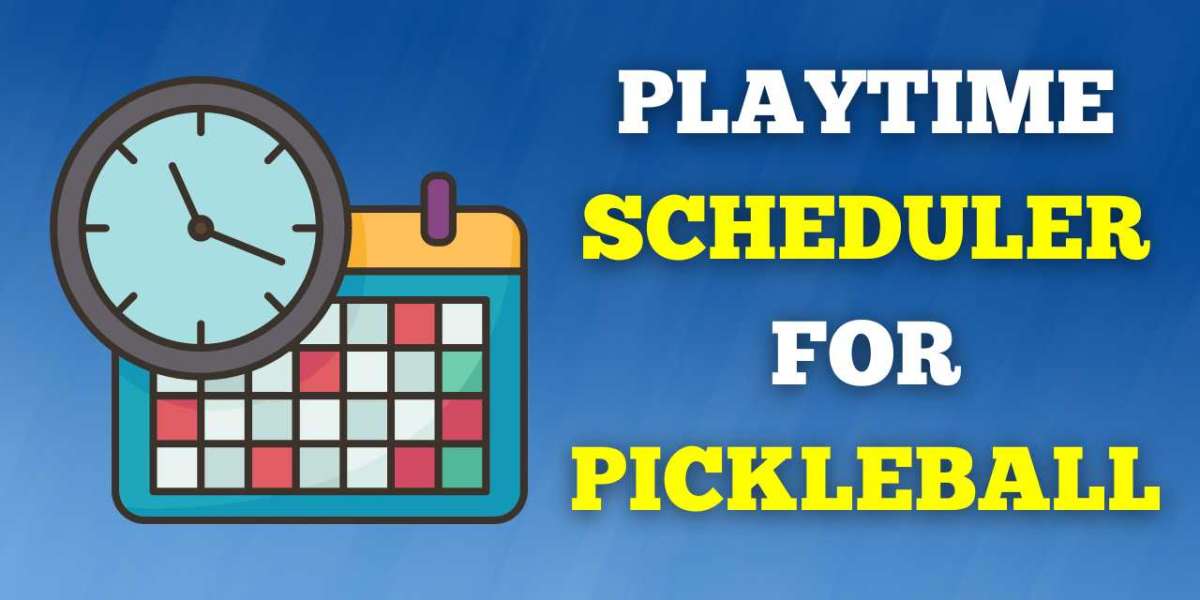In today’s fast-paced world, parents are often juggling multiple responsibilities, from work commitments to managing household chores. As a result, ensuring that children get enough time for physical activity, creative play, and downtime can be challenging. However, play is an essential part of a child’s development. It promotes cognitive, physical, social, and emotional growth, and it provides opportunities for children to learn valuable life skills. One effective way to ensure children’s playtime is both balanced and meaningful is by using a Playtime Scheduler.
A playtime scheduler is a tool that helps parents organize and structure their child's daily activities, allocating specific times for different types of play, learning, and relaxation. From free play to educational activities, these schedules can help parents maintain a healthy balance between play and other responsibilities. In this article, we will explore why every parent needs a playtime scheduler and how it can promote healthy play habits for their children.
The Importance of Play in Child Development
Before delving into the benefits of a playtime scheduler, it’s important to understand why play is crucial for children’s development. Play is not just about having fun; it’s also a critical component in fostering growth in several key areas:
- Cognitive Development: Through play, children enhance their problem-solving skills, creativity, and imagination. Educational games, puzzles, and interactive play allow children to engage with concepts like cause and effect, logic, and spatial awareness.
- Physical Development: Play, especially active play, promotes physical development. Outdoor activities like running, jumping, and playing sports improve motor skills, coordination, and overall physical health. Physical play also helps children develop a sense of rhythm and balance.
- Emotional Development: Playtime provides children with the opportunity to express emotions and understand their feelings. Through social play, they learn empathy, cooperation, and conflict resolution. Role-playing and pretend play also allow children to explore different emotions in a safe environment.
- Social Development: Play encourages children to interact with others, helping them build friendships, develop communication skills, and learn the importance of teamwork. Group play fosters a sense of belonging and cooperation.
Given the many benefits of play, it’s essential that children’s playtime be thoughtfully structured to ensure they are getting the right balance of activities that promote their growth in these areas.
1. Creating a Balanced Routine
One of the biggest challenges parents face is ensuring that their child’s day is balanced and structured. Without a clear plan, children may end up spending excessive time on screens, neglecting physical activity, or not engaging in creative play. A playtime scheduler can help solve this issue by assigning specific time slots for different types of activities, including:
- Active Play: Time for running, jumping, or engaging in sports to improve physical health and coordination.
- Creative Play: Time for activities like drawing, building, or imaginative role-playing to stimulate creativity and cognitive development.
- Educational Play: Incorporating learning games, puzzles, and educational videos or apps that enhance problem-solving and critical thinking skills.
- Free Time: Allowing for downtime where the child can relax or engage in unsupervised play, which is also beneficial for emotional development.
A playtime scheduler allows parents to create a routine that ensures children are engaging in a variety of activities that support all aspects of their development, without overloading one area at the expense of another.
2. Encouraging Healthy Habits and Time Management
By using a playtime scheduler, parents can teach their children the importance of time management from an early age. Just as adults need structure to get through the day, children benefit from knowing when to switch between activities and how to prioritize different types of play. For example, after spending time on an educational activity, the child can look forward to active play or free time. This structured schedule provides a sense of accomplishment and helps children develop self-discipline, which is a valuable skill for later in life.
Furthermore, children who follow a structured routine are less likely to engage in unhealthy behaviors, such as excessive screen time. The playtime scheduler provides parents with the opportunity to limit time spent on devices, encouraging more physical and interactive forms of play that are beneficial to their overall well-being.
3. Reducing Stress for Both Parents and Children
A playtime scheduler not only benefits the child but also helps reduce stress for parents and caregivers. Managing children’s activities throughout the day can often feel like a daunting task, especially when balancing work and household responsibilities. A playtime scheduler removes the guesswork, helping parents stay organized and ensuring that children’s needs are met consistently.
For children, knowing what to expect next can reduce anxiety. A predictable routine gives children a sense of security and stability, which is especially important for younger children who thrive on structure. Additionally, knowing that there is a specific time for play, chores, meals, and other activities makes the day run more smoothly, preventing meltdowns or frustration from either party.
4. Maximizing the Quality of Playtime
A playtime scheduler doesn’t just allocate time for play—it helps maximize the quality of that play. By incorporating a variety of activities into the schedule, children are exposed to different forms of play that encourage growth in multiple areas. For example:
- Outdoor play like biking or soccer builds endurance and motor skills while allowing children to interact with nature.
- Building blocks or arts and crafts promote creativity and spatial awareness.
- Board games or puzzles challenge children’s cognitive skills and teach problem-solving.
- Social play with peers or family members fosters important social and emotional skills.
A well-rounded schedule ensures that playtime isn’t just about keeping children entertained but also about stimulating their growth in diverse ways. This balanced approach encourages children to enjoy a wider range of experiences, helping them develop well-rounded skills.
5. Incorporating Flexibility and Adaptability
While it’s important to have a structured routine, a playtime scheduler also allows for flexibility. Life is unpredictable, and sometimes plans need to change. With a playtime scheduler, parents can easily adapt the day’s activities to suit unexpected events, such as changes in mood, weather, or family obligations.
For example, if the weather turns bad and outdoor play is not an option, the scheduler can easily be adjusted to include indoor activities, like crafts or reading. A flexible playtime scheduler helps parents adjust their expectations without feeling overwhelmed, knowing that the overall balance of activities is still being maintained.
6. Fostering Family Bonding and Interaction
In addition to organizing a child’s individual playtime, a playtime scheduler can also promote family bonding. By scheduling time for shared activities like board games, cooking, or outdoor excursions, parents can ensure that they’re spending quality time with their children. This helps strengthen family relationships and allows children to feel supported and loved.
Family time is especially important in today’s world of constant distractions. With a playtime scheduler, parents can set aside specific time blocks to be present with their children, fostering positive connections that support emotional well-being.
Conclusion: A Tool for Healthy Play Habits
In conclusion, a playtime scheduler is an essential tool for every parent looking to promote healthy play habits for their children. By organizing playtime into a balanced routine, parents can ensure their children engage in a wide variety of activities that foster cognitive, physical, emotional, and social development. A playtime scheduler not only helps parents manage their time more efficiently but also reduces stress and ensures that children’s play is purposeful and beneficial. With the flexibility to adapt to changing circumstances, a playtime scheduler empowers families to maintain a healthy, enjoyable, and structured daily routine. Visit Trending Hub24 to get more information.



